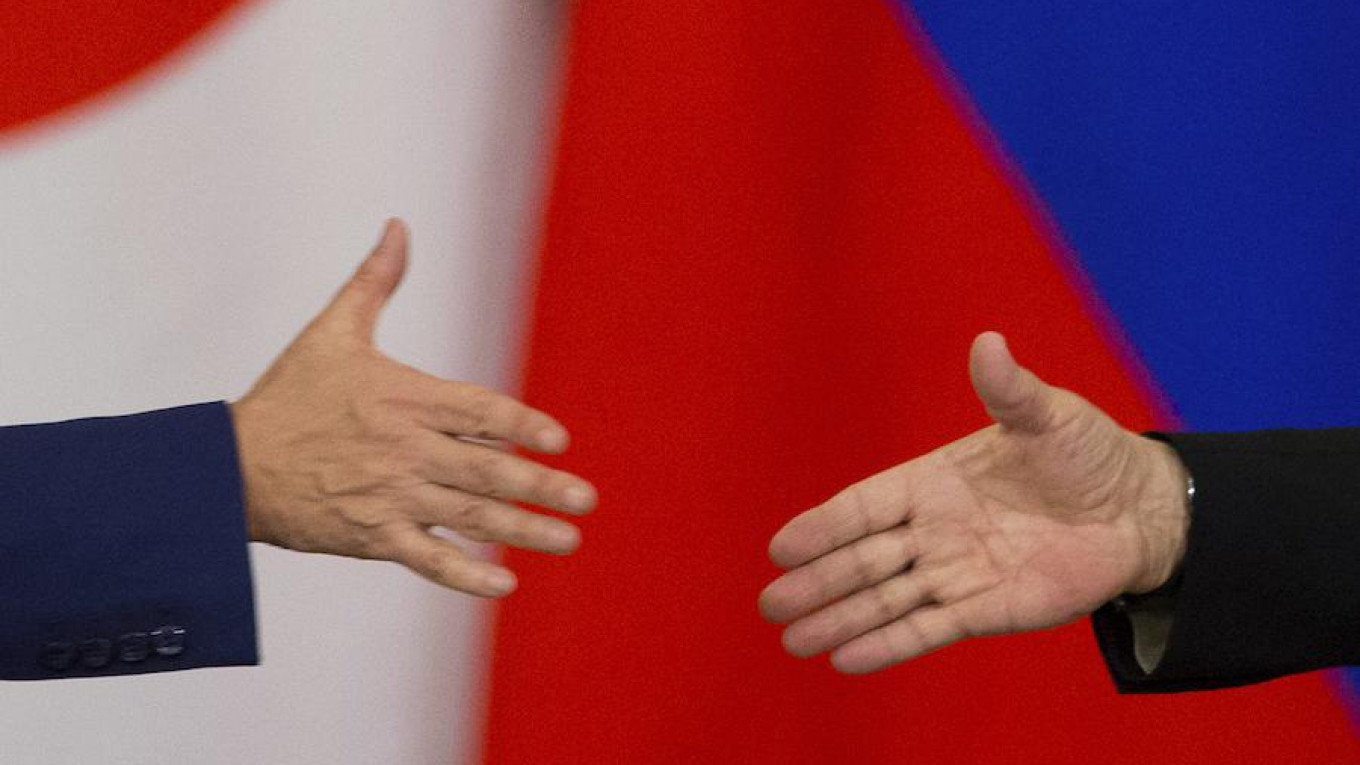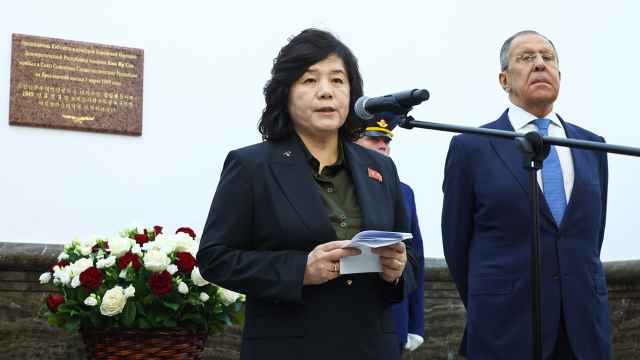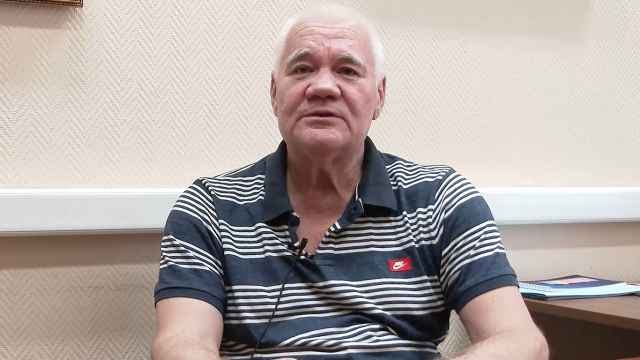Moscow - Tokyo relations are clearly moving in a positive direction. The recent meeting between President Vladimir Putin and Japanese Prime Minister Shinzo Abe is evidence: Putin now refers to Japan as a “good neighbor” and a “promising partner.”
But both positive and negative forces could have a bearing on the future of this relationship.
On the downside, Russia and Japan have found themselves on opposing sides of the U.S.-China great power rivalry.
In response to China’s military expansion and the nuclear threat from North Korea, U.S. President Donald Trump has embarked on strengthening relations with Japan, South Korea, and several other Southeast Asian countries that Washington considers allies in containing the Chinese threat.
The U.S. is accelerating plans to modernize its Pacific Fleet, deploy a THAAD missile defense system in South Korea, and strengthen its military base on the island of Guam in the western Pacific.
For its part, Russia is actively developing military and military-technical ties with China. This suggests the possibility of a quasi-alliance forming between Moscow and Beijing.
Russia categorically opposes Washington’s decision to deploy missile defense systems by its East Asian allies. In Moscow’s eyes, new systems in Korea and Japan destabilizes the balance in the region — because the Pentagon and not the international community controls them.
In addition, the U.S. THAAD system can be recalibrated from a purely defensive to an offensive posture, at which point it could target not only North Korea, but also China and even Russia.
In fact, Russia and China regularly cooperate on missile defense, and even conducted joint missile defense exercises in 2016.
Missile defense and confidence-building measures in Northeast Asia will likely remain high on the Russian-Japanese agenda.
Moscow will continue to view the introduction of missile defense systems as potentially anti-Russian. Meanwhile, Tokyo will continue to see Russia’s military-technical cooperation with China as a threat. This cooperation will inevitably intensify after the U.S. deploys its THAAD system to South Korea in 2017.
Moreover, Japan finds Russia’s military build-up on the South Kuril Islands very irritating.
One positive force does exist on the horizon of Russia - Japan relations: Japan is extremely concerned about North Korean nuclear tests and missile launches. It would like to deepen cooperation with Russia to resolve Korean peninsula issues.
At the same time, Tokyo will do everything in its power to prevent Russia and China from growing even closer. After all, a full-fledged military alliance between the two would be a nightmare for Japan.
Tokyo can use its good relations with Russia, which include regular “2+2” meetings, as leverage in its dealings with China.
Another motive for a possible Japan - Russia rapprochement is the prospect that the U.S. and China would reach a separate agreement on North Korea.
Pyongyang will soon be able to target the Pacific coast of the U.S. with nuclear missiles. Washington rightly believes that Beijing, which retains significant leverage over Pyongyang, holds the key to resolving the problem.
However, Japan remembers well how former U.S. President Richard Nixon traveled to China in 1972 without first notifying his Japanese partners.
Tokyo responded with a sharp foreign policy shift toward what it called “multilateral diplomacy.” Tokyo would perceive such a “shock” from Trump now exactly as it did the “shock” from Nixon then – as a blow to the back. Japan will hedge its risks.
Japan is interested in dialogue for reasons of security — and Russia for reasons of economic benefit.
If Washington pursues the same course again by failing to consult with Tokyo, Japan will respond by strengthening its security ties with Russia.
In economic terms, Russia represents little more than an opportunity for Japan to diversify its supply of raw materials.
For Moscow, however, Japan is a potential source of much-needed investment and technology for the Russian Far East. It is also an opportunity to diversify its partnerships in Asia and reduce Russia’s excessive dependence on the Chinese market.
In short, Japan is interested in dialogue for reasons of security, and Russia for reasons of economic benefit. The motives are different, but both have a common interest in establishing normal relations.
That objective, more than any desire to conclude a peace treaty or resolve the issue of the Kuril Islands, will push both countries toward a closer political dialogue.
Dmitry Streltsov is an expert in Japanese studies and editor of the “Japan” almanac.
A Message from The Moscow Times:
Dear readers,
We are facing unprecedented challenges. Russia's Prosecutor General's Office has designated The Moscow Times as an "undesirable" organization, criminalizing our work and putting our staff at risk of prosecution. This follows our earlier unjust labeling as a "foreign agent."
These actions are direct attempts to silence independent journalism in Russia. The authorities claim our work "discredits the decisions of the Russian leadership." We see things differently: we strive to provide accurate, unbiased reporting on Russia.
We, the journalists of The Moscow Times, refuse to be silenced. But to continue our work, we need your help.
Your support, no matter how small, makes a world of difference. If you can, please support us monthly starting from just $2. It's quick to set up, and every contribution makes a significant impact.
By supporting The Moscow Times, you're defending open, independent journalism in the face of repression. Thank you for standing with us.
Remind me later.







